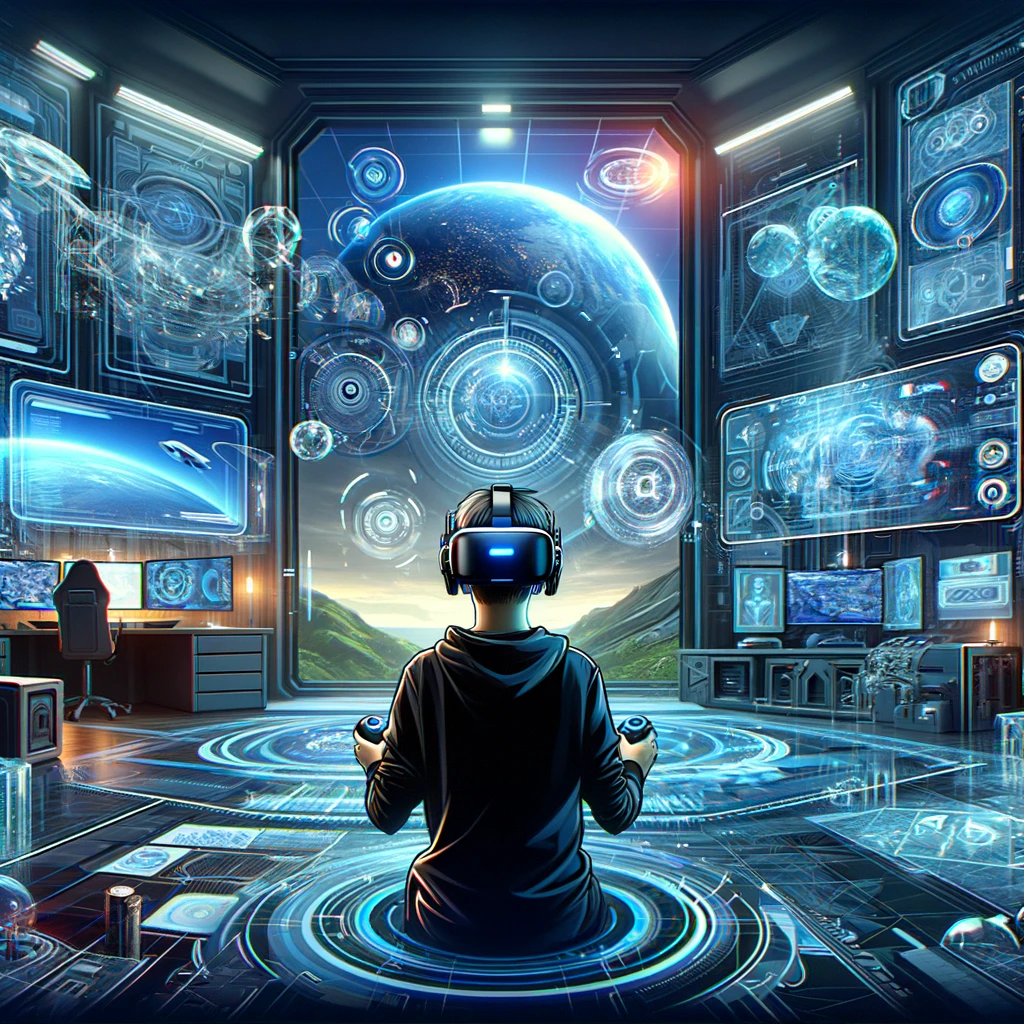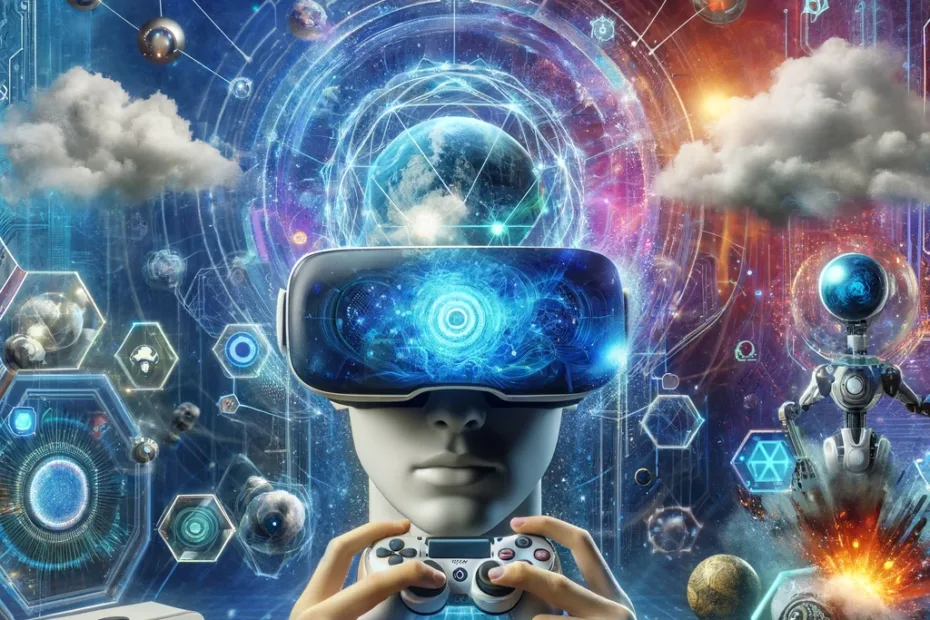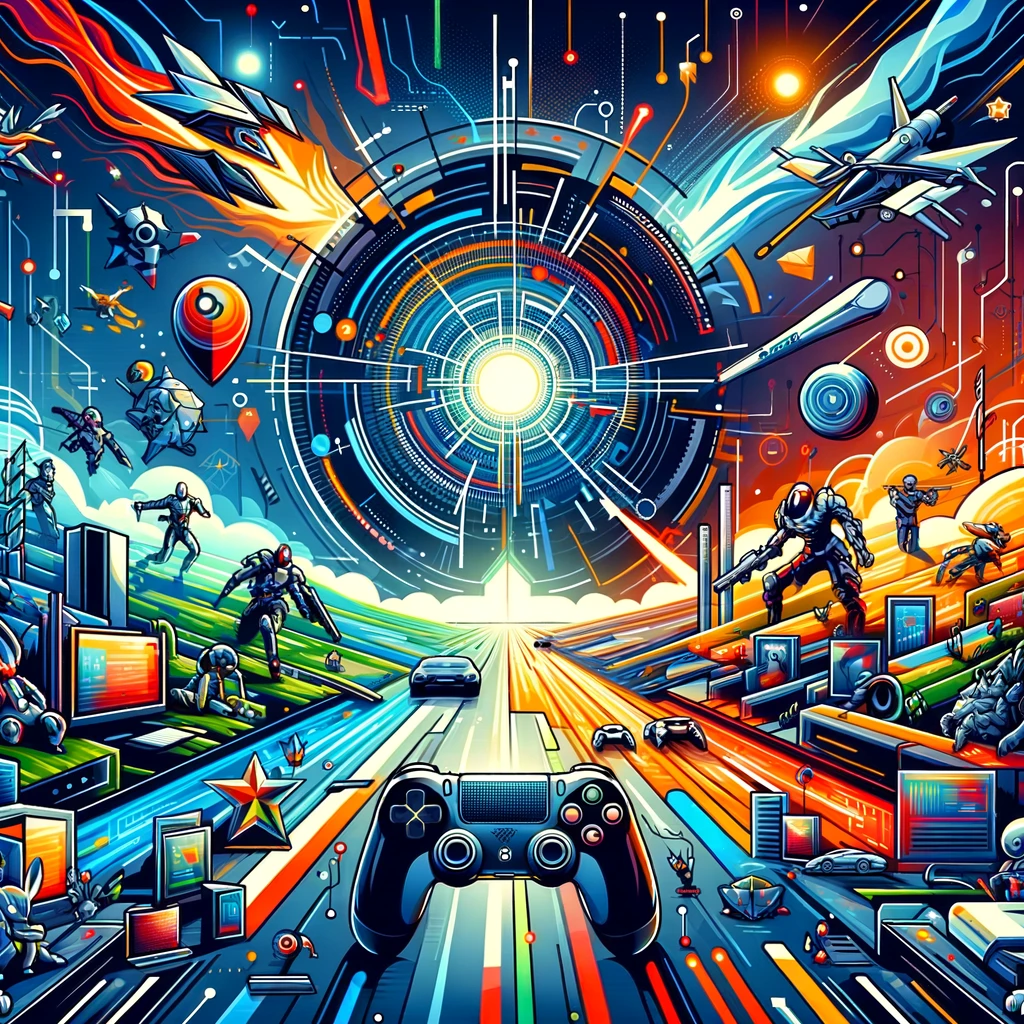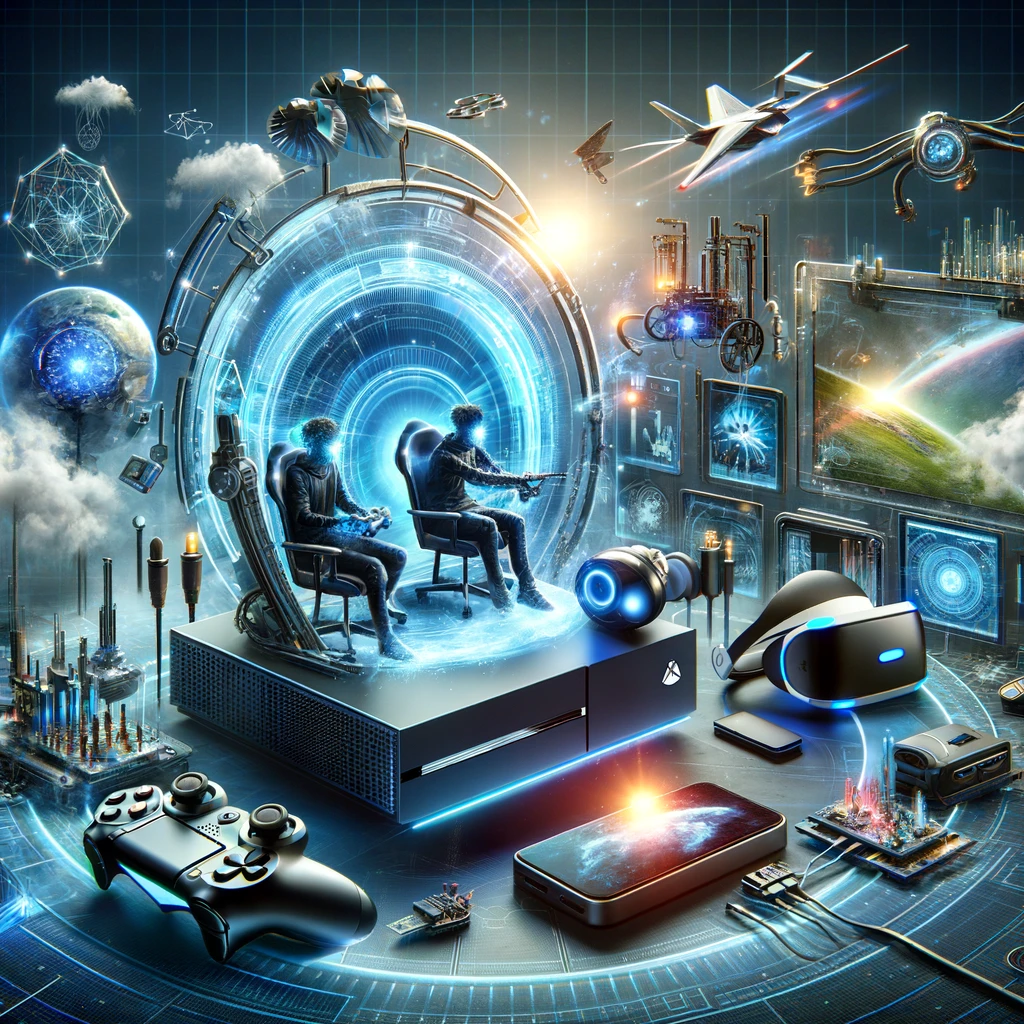Introduction to the Future of Gaming
The gaming industry has continually evolved, from the simple pixelated games of the 1970s to today’s immersive experiences that blur the lines between reality and the digital world. This evolution is not just in graphics and gameplay but also in how games are consumed, shared, and even leveraged for educational and training purposes. As we stand on the cusp of the next gaming revolution, several emerging technologies and cultural shifts promise to redefine what gaming is and can be. This section peeks into the future, where gaming not only entertains but also educates, connects, and inspires.
Technological Advancements
The future of gaming is bright, lit by the rapid advancements in technology that promise to make gaming experiences more immersive, interactive, and accessible than ever before. Virtual Reality (VR) and Augmented Reality (AR) are at the forefront, offering gamers the chance to step inside their games and experience virtual worlds in full 360-degree glory. Meanwhile, cloud gaming is breaking down the hardware barriers, allowing high-quality games to be streamed to any device, and making gaming more accessible to a broader audience. Artificial Intelligence (AI) is another game-changer, with smarter, more adaptive game environments, non-player character (NPC) behaviors, and even game development processes being revolutionized. These technologies are not just enhancing the way games are played but also transforming how they are created, making the future of gaming an exciting realm of endless possibilities.
Now, let’s visualize the future VR gaming environment with an image.

Gameplay and Storytelling Evolution
The evolution of gameplay and storytelling is a cornerstone of the future gaming landscape. As technology advances, so does the potential for more intricate and immersive narratives. Future games will likely leverage AI to create dynamic storylines that adapt to player choices in real time, offering a truly personalized gaming experience. This could mean the end of linear storytelling in games as we know it, replaced by narratives that grow and change based on individual player actions and decisions.
Moreover, the integration of VR and AR into mainstream gaming will transform gameplay mechanics, making them more intuitive and immersive. Imagine physically reaching out to open a door in a game or ducking to avoid an incoming attack. This level of interaction will deepen the connection between players and game worlds, making every action and decision feel impactful.
The Rise of Esports and Social Gaming
Esports has seen exponential growth over the past decade, turning competitive gaming into a global phenomenon with a fan base that rivals traditional sports. The future promises even greater expansion, with advancements in streaming technologies and gaming platforms making esports more accessible to viewers and players alike. This growth is not just in the number of viewers but also in the diversity of games that are being competitively played, broadening the scope of what can be considered an esports title.
Social gaming is another area poised for significant growth, driven by the human desire for connection. Future gaming platforms will likely emphasize community, with games designed from the ground up to be shared experiences. These platforms will integrate social media features, allowing players to connect, share, and engage with content seamlessly within the gaming environment. This shift will make gaming an even more powerful tool for building and maintaining social bonds, even across great distances.
Accessibility and Inclusion in Gaming
The future of gaming holds a promise of becoming more inclusive and accessible to a broader audience. Developers and technology innovators are continuously working on adaptive technologies and design philosophies that lower the barriers to gaming. This includes customizable controls, haptic feedback devices for sensory substitution, and games designed with accessibility in mind from the ground up.
Inclusion also extends to the representation within games, with a growing emphasis on diverse characters and storylines that reflect a wide range of cultures, identities, and experiences. This shift not only enriches gaming narratives but also fosters a more inclusive gaming community where players see themselves represented and respected.
Economic Models and Monetization
The monetization strategies in gaming are evolving, with traditional one-time purchase models increasingly giving way to subscriptions, free-to-play models with in-game purchases, and even blockchain and NFT integrations. Subscription services like Xbox Game Pass and PlayStation Now offer gamers a vast library of games for a monthly fee, reflecting the growing preference for access over ownership.
Free-to-play models continue to dominate, especially in mobile and PC gaming, supported by microtransactions that offer cosmetic items, in-game currencies, and other enhancements. The key to future monetization will be balancing profitability with player satisfaction, ensuring that games remain enjoyable and fair, even as developers explore new revenue streams.
Environmental Impact and Sustainable Gaming
As gaming technology advances, so does its energy consumption and environmental footprint. The future of gaming must therefore consider sustainability, from reducing the energy consumption of gaming devices and data centers to addressing the lifecycle of gaming hardware to minimize e-waste.
Developers and hardware manufacturers are already exploring energy-efficient designs and renewable energy sources for data centers. Gamers, too, are becoming more conscious of their ecological impact, supporting companies and products that prioritize sustainability.
Conclusion: What Lies Ahead
The future of gaming is a tapestry of technological innovation, immersive storytelling, competitive sportsmanship, and inclusive communities. As we look ahead, the boundaries between the virtual and real worlds seem destined to blur further, offering experiences limited only by our imagination. With a focus on accessibility, sustainability, and evolving economic models, the gaming industry is poised to not just entertain but also to enrich lives in meaningful ways.
From virtual reality paradises to global esports arenas and beyond, the future of gaming promises a journey as diverse and dynamic as the gamers themselves. As we embrace these changes, the essence of gaming—bringing joy, fostering connections, and challenging our skills and imaginations—remains the unchanging core of this ever-evolving world.


